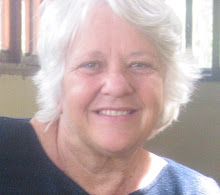Yesterday, after two weeks in Mississippi, I crossed over the border into Alabama. It makes me a little sad because I developed a kind of intimacy with the Mississippi of Highway 11, a road that suffered the impact of Katrina's fierce winds, that rushed up the middle of the state after she was finished with New Orleans and other coastal areas.
At first I thought that all the deterioration I saw along the highway - abandoned homes, boarded-up stores, closed businesses, empty lots and warehouses - was the result of the 2005 storm. But slowly I came to realize that even before Katrina the booming towns along Highway 11 must have been losing their traffic and their customers to the new interstate, Route 59, and to all the chains that sprung up at the highway exits.
Such has been the progress of our market force-capitalism. Such is the progress to which countries around the world aspire. Nothing can withstand the inexorable advance of the culture of oil-based locomotion: cars and trucks in hundreds of shapes and sizes. Everybody needs one or two, all business requires the transportation of people and goods, and new businesses spring up at an amazing rate to fill yet new needs and desires. Surely traffic glutted the two lanes of Highway 11 and a new superhighway seemed essential.
Now the traffic along Hwy 11 in Mississippi is largely local retail business and the maintenance of public works, roads, forests, wetlands, with all kinds of work trucks dominating the road. I noticed in the vicinity of Laurel that every other business related to the upkeep of those trucks. There were gas stations and mechanic shops, tire shops and muffler shops, shops for barding and welding, tinting and detailing, hydraulics and pneumatics, nuts and bolts, oil tools, wheels and brakes ... A lot of run-down stations, fenced up shops, empty lots that had once seen plenty of activity. I saw oil addiction at its sad end, where it left a destroyed landscape and users gasping in their agony. Yes, sometimes I go for hyperbole - it wasn't all that bad, but I suspect that's where the oil business is headed.

No one walks. There are no sidewalks, no benches to sit on or shaded places to rest. No public restrooms or even water fountains. Bridges have no lanes for pedestrians. Still, it's worth walking. I've shared some of my nature photos with you and mentioned the wonderful stillness of moments when there is no traffic along an isolated stretch of road. Have I mentioned the birds and the flowers? I will remember Mississippi for all these, and for the kindness and warmth of the people I met, the storekeepers and folks who offered me rides along the way.
They told me that they take care of each other. But they also said that it was no longer as safe as it used to be before Katrina. Refugees from New Orleans have moved up into Mississippi communities, some of them bringing a more predatory culture that has changed folks' perception of their own safety and that of the neighborhoods.
Climate refugees, this is what we're talking about. People displaced by ravaging storms in delta areas. People who have lost their homes, their livelihoods, in some cases their families. Violence is only a step away when all is lost. We cannot afford to be complacent in the face of rapid climate change, even if we live in relatively safe areas, because the reality of climate refugees is bound to affect us all. We should be roused to action first by compassion for all those who will be in the path of destruction, rising waters, drought, famine and thirst; and second we should be motivated by our own desire for survival, for ourselves and our families.
On a more genteel note, I give you one of my first images from Alabama. The face of Highway 11 has changed.


2 comments:
I looked for Utah on your road and couldn't find it. What a lovely old home!
Utah in Alabama is spelled Eutaw, that's why. - Greta
Post a Comment